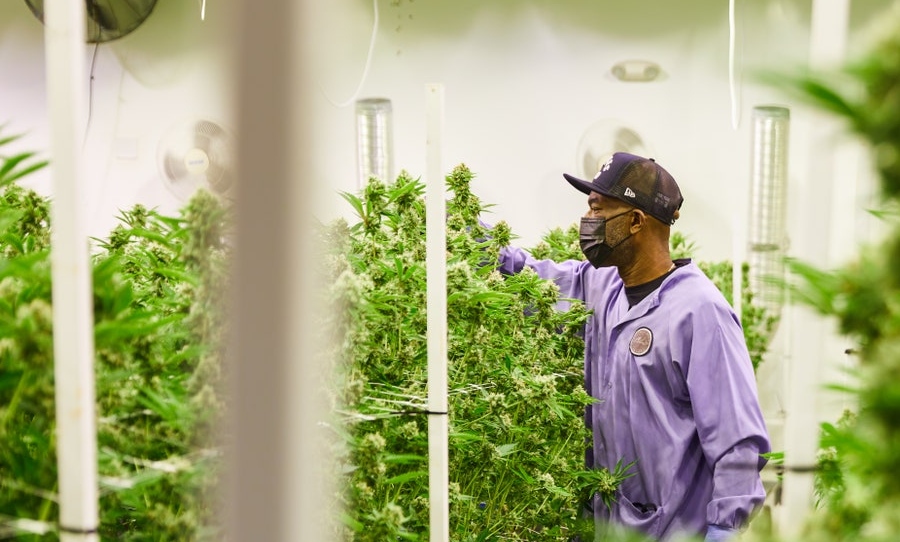It turns out that cannabis growth might be seriously harming the environment. Trust us, we’re just as bummed as you are.
An environmental report published last week revealed that Canadian pot company Canopy Growth has been using alarming amounts of energy to grow their cannabis.
According to the National Observer, “emissions from the company were equivalent to burning more than 65 million pounds of coal.” Jeez, that’s a lot of air pollution.

Sadly, they’re not the only pot company in Canada with concerning GHG emission levels. Reports published by Rubicon Organics and Khiron Life Sciences Corp reveal just how widespread this issue is. And with the nation’s sustainability regulations becoming increasingly tighter, these companies are now facing the risk of losing investors and public support if they don’t make some changes.
According to Majid Mirza, CEO of ESGTree, investors are “increasingly allocating capital based on a company’s ESG ratings. The better the rating, the easier it is to attract investors.”
Unsurprisingly, there’s been significant growth in the commercial production of weed since Canada legalised its recreational use in 2018. However, recent studies have shed light on the environmental impact this production rise has had.
A 2021 study published in Nature Sustainability revealed the “close relationship between the emissions of an indoor cannabis production site and the available energy sources on the power grid.” According to the research, “maintaining optimal growing conditions requires a lot of energy to hold a space at the right temperature and humidity levels. Carbon dioxide is often also used to aid the plant’s photosynthesis that helps harvest bigger yields.”
In an effort to turn things around, Canada launched a sustainable finance action council in May last year to steer the nation’s financial sector toward a greener economy by “integrating sustainable finance into standard industry practice.”
One sustainability approach that’s been proposed is moving cannabis production somewhere else. Research revealed that “cannabis grown in provinces like B.C. and Quebec, where power grids are dominated by hydro, would have lower emissions than if grown in provinces like Alberta and Saskatchewan that still burn huge amounts of coal and natural gas to generate electricity.”
But for now, businesses like Canopy Growth are doing what they can from where they’re at. The company has reported a number of energy conservation projects, like installing a biomass boiler at their site in Mirabel, Que., and switching to energy-efficient heating and cooling systems at their indoor growing sites.
According to Canopy’s Chief Advocacy Officer, Hilary Black, “overall, in 2021, our energy conservation projects resulted in 2,974 MWh per year of electricity and 7,957 MWh per year of natural gas savings.”



